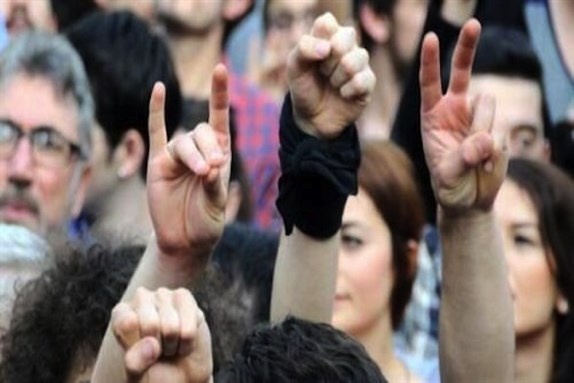I sit, for the twelfth hour now, alone and struggling for what to do. For the first time since I got on a plane for Egypt on 29 January 2011, I am at a loss.
Worse days than today lie ahead of us.
We thought we could change the world. We know now that that feeling was not unique to us that every revolutionary moment courses with the pulse of a manifest destiny. How different things feel today. I will not bury our convictions, but that feeling—youthful optimism? naiveté? idealism? foolishness?—is now truly and irrevocably dead.
I mourn the dead and I despise those killing them. I mourn the dead and I despise those sending them to their deaths. I mourn the dead and I despise those that excuse their murder. How did it come to this? How did we get here? What is this place?
It is 12 February 2011. Hosni Mubarak has fallen. In the morning I will fly to America to finish a job, before moving permanently to Cairo to help build the new country. I am sitting on my mother’s balcony. We are smoking cigarettes and drinking tea to keep out the cold and talking; about all that we have seen and done, about all that we are going to do. Everything, on that night, was possible. Our conversation ranges from the grandiose of the global revolution to the practical re-thinking of ministerial appointments to the minutiae of the requirements of the film school that should be established. We talked through the night. I took notes.
It is, perhaps, this memory that hurts me the most.
By the time I return from America the army had cleared two sit-ins from Tahrir Square, begun court martialling civilians en masse and assaulting women protesters with “virginity tests.” The revolution now is smaller, but serious, focused and under sustained attack. The un-fallen state, the deep state, the client state; once a month, every month, it attacks. It clears Tahrir in March, April, August and December. It attacks protesters at the Israeli Embassy. It envelops downtown Cairo in a November mist of Pennsylvanian tear gas. It rains down rocks and Molotov cocktails from the roof of the Cabinet building. It welds shut the doors of the Port Said stadium death trap. Every month, people die fighting it.
There were moments when we could have broken the army’s grip on the country. We should have stayed in Tahrir after Mubarak was ousted. Tahrir was in the driving seat and had not yet acquired the politicians to sell it out. But we left. Everyone said they would be back the next day and then, somehow, they were not. People wanted to shower and to sleep in their own beds. Then spontaneous cleaning brigades of earnest patriots spread through the city and by midday everything was nice and tidy and gone.
In November 2011 and in January 2012 the streets echoed with chants demanding the end of military rule. But now it had become the self-appointed role of the politicians to translate street action into political gain. Now, the army had people to talk to. Had all the forces that were supposedly against the military—the revolutionaries, the liberals, the Brotherhood and the Salafis—ever truly united where might we be today? Dead, possibly. But maybe not. Maybe somewhere closer to a civilian state.
A real, ideological alliance was never possible. But a tactical, practical one might just have worked. But rather than work together each party repeatedly met with and made deals with the army, consistently placing the generals in the strongest tactical position. Everyone was to blame. The old, moneyed liberals who presented themselves as allied with the revolution lived in relative comfort, had historical ties to the military and routinely demonized the Brotherhood. The revolutionaries’ disdain for high politics meant that they effectively removed themselves from the equation. The Salafis were only ever interested in the deal that brought them the most power and their prized ministries—education and health. And the Brotherhood, long-enamored of their ability to put numbers on the street, was arrogant and duplicitous from the beginning—making serious electoral promises to the liberals, lobbying America and offering the army immunity and oversight of itself.
When in power, Mohamed Morsi refused to take on the Ministry of Interior. Instead, he appointed Ahmad Gamal Eddin who, as chief of the Assiut Security Directorate almost killed off the revolution there in January 2011 and then was the Supreme Council of the Armed Forces` chief of general security at the time of the Mohamed Mahmoud and the ultras massacres.
The main enemy of the people has always been the security state—the police and the military. We will never get anywhere until they are dismantled entirely. There was a moment when that could have been achieved, when a civilian state could have been built. But Morsi and the Muslim Brotherhood would have had to choose the challenge of working with the disparate and bickering forces of the left and the liberals over dealing with the organized certainty of the military.
* * * *
I write now from Sarajevo. I sat yesterday in the Srebrenica memorial museum. While men were jumping off Cairo’s Six October Bridge to escape the gunfire closing in on them from all sides, General Ratko Mladic was staring at the camera, speaking to history:
Here we are on 11 July 1995, in Serbian Srebrenica, just before a great Serb holy day. We give this town to the Serbian nation; in memory of the uprising against the Turks. The time has now come to take revenge on the Muslims.
I wander the streets alone. Every building is still mapped with the scars of war. I drink alone at the opening gala of the film festival I am attending, thinking of a woman in the museum video.
If I had cried out, if I had screamed that they could not take him. If I had grabbed him. If I had done something. I do not know. Maybe I would be able to live with myself.
* * * *
It is 27 June, 2013. We are sitting in Estoril, at the corner table under the television. Of the six of us, three genuinely believe that the marches on 30 June will be very seriously attacked; that it is the perfect moment for the old National Democratic Party networks to throw the country into chaos, and so force the military to take control again. There is talk of kill lists. I spend hundreds of pounds on goggles I hope will keep the birdshot out of our eyes. I do not want to march that day. I want Morsi gone, but the voices we are hearing are all feloul, and online instructions are circulating insisting no one chant against the military or the police. But all my friends are going, so what choice do I have? To watch them die on television?
We read it wrong. The blood that the army, the regime, wanted was not ours. Not this time. Is it because we are now irrelevant? Or because the backlash would have been too strong?
And on 3 July, just as they did on 11 February 2011, the military staged a coup. In February they removed Mubarak to sap public pressure and demobilize people. And it worked. What happened this time? Did the street pressure force the army to act, or did the army create the street pressure through Tamarod to get what they wanted?
* * * *
Can the side without guns ever win?
An Iranian friend once assured me that reform, rather than revolution, is what we want. That revolutions are only won by those most violent.
The first thing I read when I woke up today was Adam Shatz. He wrote,
Egypt’s revolutionaries mistook their belief in the revolution for the existence of a revolution.
But what do we have if not our beliefs? They are the foundation of our actions, of our identities. And it was transformative: the belief we all shared, for a moment, in each other. In an eternity of disappointment and greed and malice that moment, that moment in which being human was finally worth something, in which having a community was preferable to being alone with a book, had a value that will never be lost. You cannot underestimate how important these two and half years have been for people, how empowered, how unafraid people were. The existence of the revolution should not be confused with the existence of a political leadership and process. The revolution is dead when we say it is dead. The revolution is dead when we will no longer die for it.
My apartment in Cairo is in Bab al-Louq and every time I go to the supermarket I see the doorway I hid in on 22 November 2011, during the first battle of Mohamed Mahmoud Street. I smell the cloud of tear gas filling the street, see the locked glass door and the flashes of police gunfire coming closer and closer in the reflection. I hear the crack of a shotgun reloading, louder and louder. And I hear, with perfect clarity, my thoughts
Turn. Take it in the back. Maybe you will survive. Stand up straight. Stand up. They will remember you. It is your turn now. People have given more. People have given their eyes. Alaa is in jail. They faced it bravely. Bravely. Stand up straight. They will remember you.
I cannot stand up to death today. Today I am a coward who can only write. I see the revolution being dragged away to be shot over a shallow grave and I do not know what to do. But I do know that, before it is too late, we will grab it, we will fight for it. We have to, or we will never be able to live with ourselves.
[This article originally appeared on Mada Masr.]
![[On the first anniversay of January 25 Revolution, Egyptians took the streets stating that the demands of the January uprisings still stand, Cairo, Egypt. Image originally posted to Flickr by Sarah Carr]](https://kms.jadaliyya.com/Images/357x383xo/ScreenShot2013-09-13at10.49.09PM.png)

















